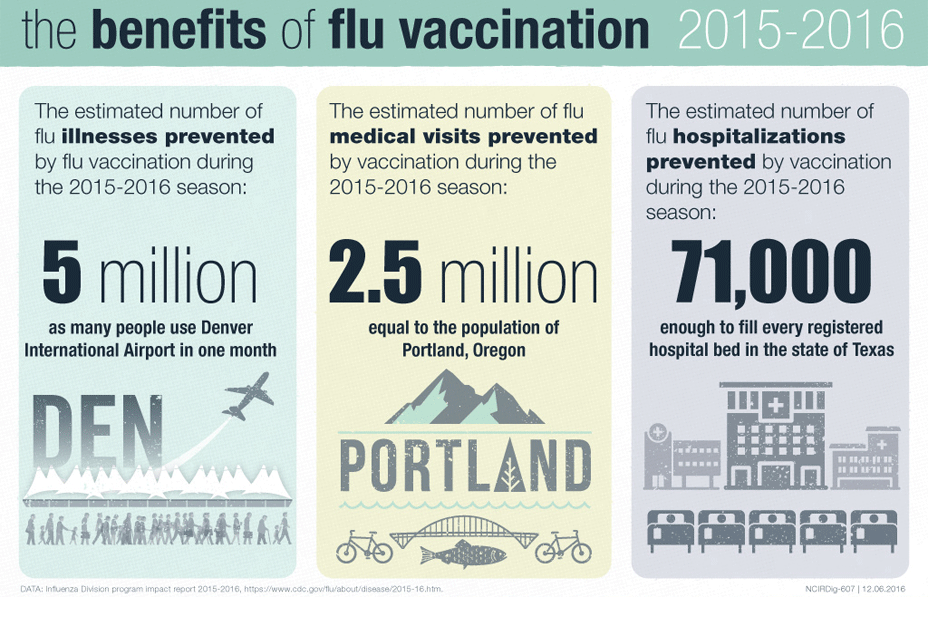Flu (Influenza)
[In-floo-en-zuh]

Influenza (flu) is a common contagious viral respiratory illness that infects the nose, throat, and lungs. Flu viruses spread mainly by droplets made when people with flu cough, sneeze or talk. When severe, flu complications can lead to hospitalization and death. CDC recommends that everyone 6 months and older get a flu vaccine. Flu vaccination can prevent flu illnesses and flu complications that can result in hospitalization. An annual flu vaccination is the first and best way to protect against flu. However, if you become sick with flu, a doctor or clinic can prescribe antivirals to treat flu illness, reducing severity and duration of illness and flu complications. CDC recommends influenza antiviral treatment for people who are very sick with flu and people with flu who are at high risk of serious flu complications.
Quiz
Key Facts
- Flu seasons are unpredictable. The severity of flu seasons can differ substantially from year to year.
- You may be able to spread the flu to someone else before you know you are sick, as well as while you are sick.
- Hundreds of thousands of people are hospitalized because of flu complications each year.
- People with certain long-term health conditions, like asthma or diabetes, are at high risk of serious flu complications.
- Take 3 steps to fight flu: get vaccinated, take everyday preventive actions, and take antiviral medicines if prescribed.
Media
Prevention Tips
- An annual flu vaccination is the best way currently available to prevent flu as well as flu-related complications that could lead to severe illness or hospitalization. As long as flu viruses are spreading, you can still benefit from a flu vaccine.
- If possible, stay home from work, school, or errands when you are sick. This will help to prevent others from catching your illness.
- Avoid touching your eyes, nose, or mouth. Germs are often spread when a person touches something that is contaminated with germs and then touches their eyes, nose, or mouth.
- Wash your hands regularly to protect from germs. If soap and water are not available, use an alcohol-based hand rub.
- People at high risk of serious flu complications who develop flu symptoms should consult a health care provider. They may prescribe influenza antiviral drugs, which can lessen the severity of your illness, shorten the amount of time you are sick and prevent serious flu complications.
- Page last reviewed: October 10, 2017
- Page last updated: October 10, 2017
- Content source:


 ShareCompartir
ShareCompartir




